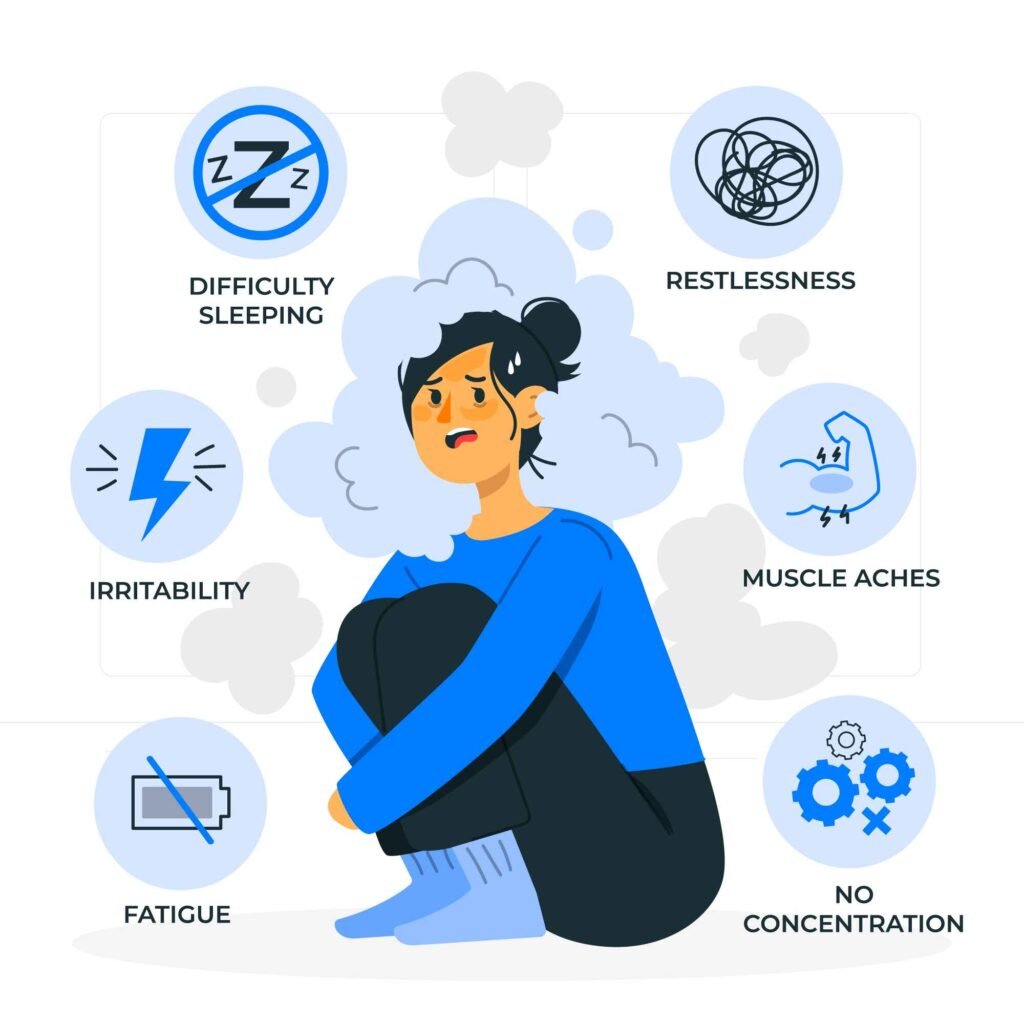
Morning Routines for Improved Mental Clarity How a Structured Routine Can Set a Positive Tone for Your Day
Mornings set the stage for how the rest of your day unfolds. The choices you make in the first few hours after waking can impact your mood, energy levels, and mental clarity throughout the day. With a structured morning routine, you can optimize your mental state and create a sense of control and purpose. In this blog post, we’ll explore how you can craft the perfect morning routine to boost mental clarity and set a positive tone for your day.
1. The Science Behind Morning Routines and Mental Clarity
Before diving into the details of what makes an effective morning routine, it’s important to understand why it works. Our brains are naturally wired to perform better when we have structure and predictability. A structured routine reduces decision fatigue, a psychological phenomenon where making too many decisions depletes your mental energy. By automating your morning routine, you conserve mental resources for more important tasks throughout the day.
Moreover, studies have shown that engaging in specific morning activities—such as mindfulness, physical exercise, and hydration—can enhance cognitive performance and mental clarity. These activities regulate stress hormones, improve mood, and even boost long-term mental resilience.
2. Start the Night Before: Set Yourself Up for Success
A successful morning begins the night before. One of the biggest obstacles to a productive morning is waking up without a plan. By preparing for the day ahead in the evening, you eliminate the need to make decisions right after you wake up, allowing you to begin the day with clarity and purpose.
- Get Enough Sleep: Sleep is crucial for mental clarity. Aim for 7-8 hours of quality sleep by establishing a consistent bedtime and creating a calming bedtime routine. This will help you wake up refreshed and ready to tackle the day.
- Plan Your Day: Spend 5-10 minutes in the evening reviewing your schedule for the next day. Jot down your top priorities or use a digital planner to organize tasks, meetings, or personal goals. This will help you wake up with a sense of direction and reduce morning anxiety.
- Prepare Your Environment: Lay out your clothes, prepare your breakfast, and tidy up your space. These small actions prevent unnecessary stress and keep your morning streamlined.
3. Wake Up at the Same Time Each Day
Consistency is key to setting a positive tone for your day. Waking up at the same time every day, even on weekends, helps regulate your body’s internal clock, known as the circadian rhythm. This rhythm governs your sleep-wake cycle and plays a critical role in how alert and focused you feel.
If you’re not a natural morning person, start by gradually adjusting your wake-up time by 15 minutes each week. This slow transition allows your body to adapt, making it easier to wake up without feeling groggy or exhausted.
4. Hydrate Immediately After Waking
After 7-8 hours of sleep, your body is dehydrated. Drinking water first thing in the morning helps rehydrate your system, boosting energy and improving cognitive function. Hydration jumpstarts your metabolism and flushes out toxins, leaving you feeling more alert and ready to take on the day.
Some people even find that adding a squeeze of lemon to their water gives them a refreshing boost. The combination of water and citrus aids digestion and supports a healthy immune system.
5. Avoid the Snooze Button
While it may feel tempting to hit snooze and grab a few more minutes of sleep, this habit can actually make you feel more tired and groggy. The interrupted sleep from snoozing negatively affects your sleep cycle, leading to sleep inertia—a state of confusion and grogginess that lingers after waking.
Instead, set a single alarm and commit to getting out of bed as soon as it rings. By doing so, you start the day with discipline and avoid the sluggishness that comes with snoozing.
6. Move Your Body: Exercise or Stretch
Physical activity in the morning is one of the best ways to boost mental clarity and energy. Exercise releases endorphins, which improve mood and reduce stress. Whether you go for a jog, do a short yoga session, or stretch for 10 minutes, incorporating movement into your routine helps improve focus and brain function.
For busy individuals, even five minutes of physical activity can make a significant difference. You don’t need to hit the gym every morning—a quick walk around the block or a few push-ups at home can be enough to get your blood flowing and wake up your mind.
7. Mindfulness: Meditate or Journal
Starting your morning with mindfulness practices, such as meditation, journaling, or deep breathing exercises, sets a calm and focused tone for the rest of the day. These practices help clear mental clutter, reduce anxiety, and promote a sense of inner peace.
- Meditation: Spend 5-10 minutes focusing on your breath or using a guided meditation app. This practice helps you stay present and enhances your ability to concentrate on the tasks ahead.
- Journaling: Reflect on your thoughts and intentions by writing in a journal. You can write about what you’re grateful for, set intentions for the day, or simply release any lingering emotions or worries from the previous day.
Mindfulness practices are scientifically proven to reduce stress and improve mental clarity, making them a cornerstone of a productive morning routine.
8. Eat a Nutritious Breakfast
A balanced breakfast fuels both your body and mind. Avoid sugary cereals and opt for whole foods that provide sustained energy throughout the morning. Foods rich in protein, healthy fats, and complex carbohydrates are ideal for boosting brain function and keeping you alert.
Examples of brain-boosting breakfast options include:
- Oatmeal with nuts and berries
- Scrambled eggs with vegetables
- A smoothie packed with leafy greens, fruit, and a scoop of protein powder
If you’re not hungry in the morning, consider fasting until you are. Some people find intermittent fasting helpful for mental clarity, but always ensure you stay hydrated.
9. Set Daily Goals or Intentions
Take a few minutes each morning to set your goals or intentions for the day. Whether it’s writing a to-do list or mentally mapping out your priorities, having a clear plan reduces feelings of overwhelm and increases your sense of control.
Research shows that setting intentions helps direct your focus and enhances your productivity. When you know what you need to accomplish, you can allocate your time and energy more effectively.
10. Avoid Technology (At Least for the First Hour)
It’s easy to grab your phone and start scrolling through social media or emails the moment you wake up, but this habit can hinder your mental clarity. The constant barrage of information from your phone can overwhelm your brain, increase stress, and disrupt your focus.
Try to avoid screens for the first hour of your morning. Instead, spend that time focusing on activities that nurture your mind and body, such as exercising, meditating, or reading a book. If you must use your phone, consider setting app limits or using “Do Not Disturb” mode to prevent distractions.
11. Stay Consistent and Flexible
Building a successful morning routine takes time, and consistency is crucial. Stick to your routine for at least a few weeks to create lasting habits. However, life can be unpredictable, so allow yourself some flexibility. If you need to adjust your routine to accommodate changes in your schedule, do so without guilt.
12. The Long-term Impact of a Morning Routine
A consistent morning routine not only boosts your mental clarity but also helps reduce stress, improves productivity, and fosters a sense of well-being. Over time, these benefits compound, leading to better overall mental health, increased resilience, and greater satisfaction in both your personal and professional life.
When you make a conscious effort to start your day with intention and focus, you set a positive tone that can carry you through even the most challenging tasks.
Conclusion
Creating a structured morning routine is one of the most powerful ways to improve your mental clarity and productivity. By implementing the right practices—like consistent wake times, hydration, physical activity, mindfulness, and goal-setting—you can set a positive tone for your entire day.
The key is to tailor your routine to your unique needs and preferences, starting small and building up as you become more comfortable. With consistency and a commitment to self-care, your morning routine can become the foundation for a successful and fulfilling day, every day.



